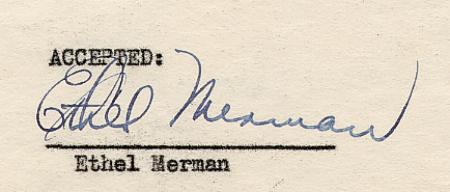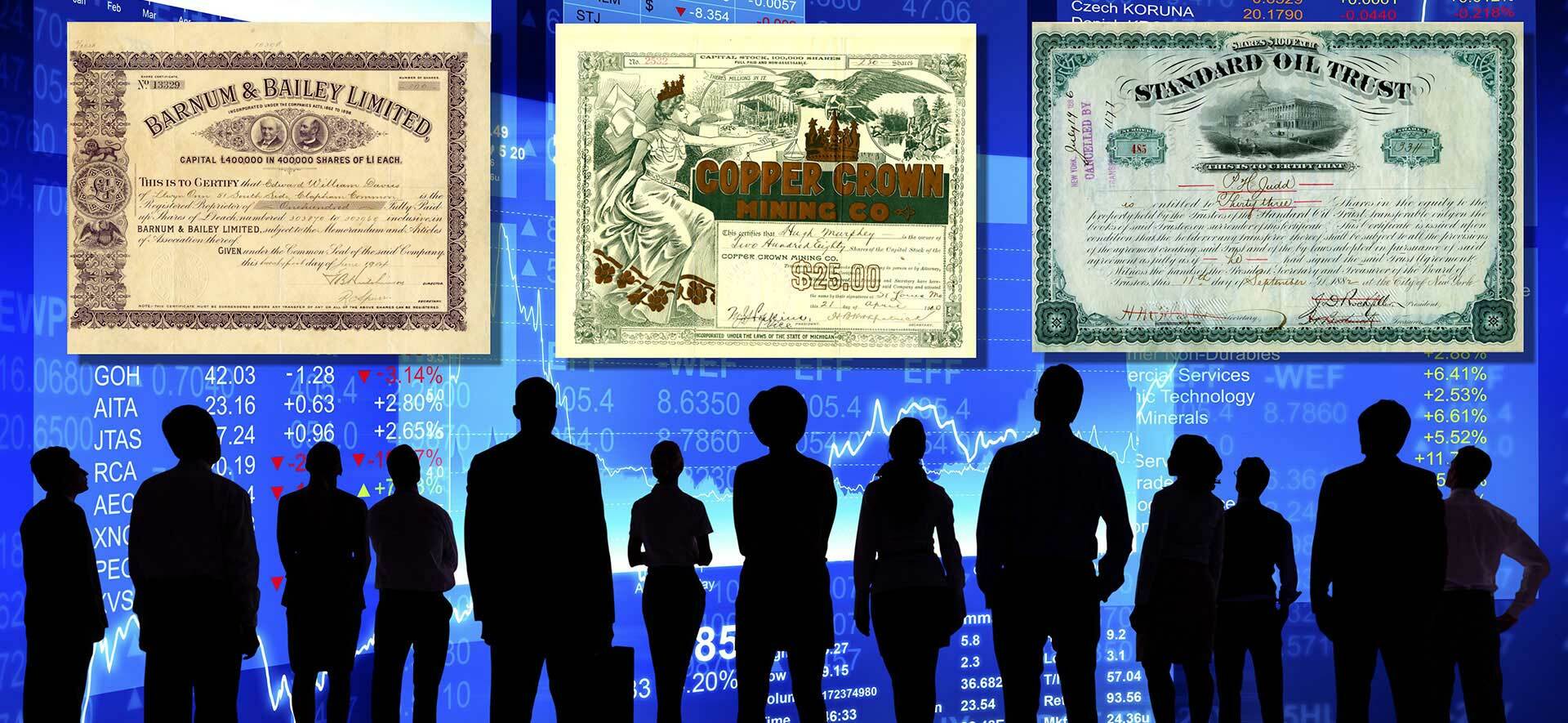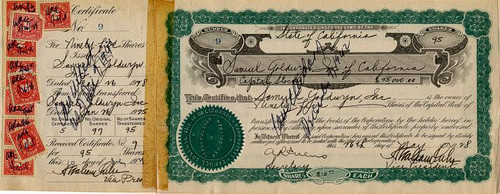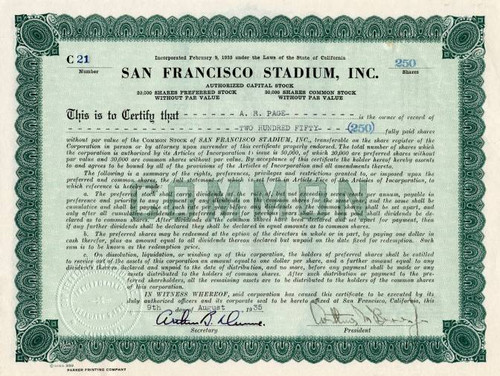Contract amendment letter from Samuel Goldwyn Inc., Ltd to Ethel Merman dated 1935. This item is handsigned by Ethel Merman and Abraham Lehr and is over 74 years old. This is historic document signed early in Ethel Merman's incredible career. 
Bold Ethel Merman Signature Ethel Merman Born January 16, 1908 Origin Astoria, Queens, New York Died February 15, 1984 New York, New York Ethel Merman (January 16, 1908 February 15, 1984) was a Tony Award winning star of stage and film musicals, well known for her powerful voice and vocal range. She was born Ethel Agnes Zimmermann, in her maternal grandmother's house at 359 4th Avenue, Astoria, Queens, New York, of a German Lutheran father and Scottish Presbyterian mother. Her father, Edward Zimmermann, was an accountant and her mother, Agnes Gardner, was a school teacher. Although many people long assumed she was Jewish because of her pre-stage last name (which is common among non-Jewish Germans as well, particularly when there are two "n"s at the end of the name) along with the fact that she was from New York City, she was baptized Episcopalian. She used to stand outside the Famous Players-Lasky Studios and wait to see her favorite Broadway star, Alice Brady. Ethel loved to sing songs like "By the Light of the Silv'ry Moon" and "Alexander's Ragtime Band" while her adoring father accompanied her on the piano. William Cullen Bryant High School in Astoria, NY named its auditorium Ethel Merman Theater. Merman was known for her powerful, belting alto voice, precise enunciation, and accurate pitch. Because stage singers performed without microphones when she began singing professionally, she had great advantages in show business, despite the fact that she never received any singing lessons. In fact, Broadway lore holds that George Gershwin warned her never to take a singing lesson after seeing her opening reviews for Girl Crazy. Stephen Sondheim, who wrote the lyrics for Merman's Gypsy, remembered that she could become "mechanical" after a while. "She performed the hell out of the show when the critics were there[, though,]" he added. "Or if she thought there was a celebrity in the audience. So we used to spread a rumor that Frank Sinatra was out front. That whoever, Judy Garland was out front. I'll tell you one thing [Merman] did do, she steadily upstaged everybody. Every night, she would be about one more foot upstage, so finally they were all playing with their backs to the audience. I don't think it was conscious. Ethel was not big on brains. But she sure knew her way around a stage, and it was all instinctive." Merman began singing while working as a secretary for the B-K Booster Vacuum Brake Company in Queens. She eventually became a full time vaudeville performer, and played the pinnacle of vaudeville, the Palace Theatre in New York City. She had already been engaged for Girl Crazy, a musical with songs by George and Ira Gershwin, which also starred a very young Ginger Rogers (19 years old) in 1930. Although third billed, her rendition of "I Got Rhythm" in the show was popular, and by the late 1930s she had become the first lady of the Broadway musical stage. Many consider her the leading Broadway musical performer of the twentieth century with her signature song being "There's No Business Like Show Business". Merman starred in five Cole Porter musicals, among them Anything Goes in 1934 where she introduced "I Get a Kick Out of You", "Blow Gabriel Blow", and the title song. Her next musical with Porter was Red, Hot and Blue in which she co-starred with Bob Hope and Jimmy Durante and introduced "It's Delovely" and "Down in the Depths (on the 90th floor)." In 1939's DuBarry Was a Lady, Porter provided Merman with a "can you top this" duet with Bert Lahr, "Friendship". Like "You're the Top" in Anything Goes, this kind of duet became one of her signatures. Porter's lyrics also helped showcase her comic talents in duets in Panama Hattie ("Let's Be Buddies", "I've Still Got My Health"), and Something for the Boys, ("By the Mississinewah", "Hey Good Lookin'"). Irving Berlin supplied Merman with equally memorable duets, including counterpoint songs An Old-Fashioned Wedding with Bruce Yarnell, written for the 1966 revival of Annie Get Your Gun, and "You're Just in Love" with Russell Nype in Call Me Madam. Merman won the 1951 Tony Award for Best Actress for her performance as Sally Adams in Call Me Madam. She reprised her role in the lively Walter Lang film version. Perhaps Merman's most revered performance was in Gypsy as Gypsy Rose Lee's mother Rose. Merman introduced "Everything's Coming Up Roses", "Some People", and ended the show with the wrenching "Rose's Turn". Critics and audiences saw her creation of Madame Rose as the performance of her career. She did not get the role in the movie version, however, which went to movie actress Rosalind Russell, and an infuriated Merman was quoted as saying: "There's a name for women like her but it's seldom used in society outside [of] a kennel". (Since this is a line from the film The Women, in which Russell appeared, the story may be apocryphal.) She also insulted Russell's husband, Freddie Brisson, by calling him the "Lizard of Roz". Merman decided to take Gypsy on the road and trumped the motion picture as a result. Merman lost the Tony Award to Mary Martin, who was playing Maria in The Sound of Music. "How can you buck a nun?", mused Merman. The competitiveness notwithstanding, Merman and Martin were friends off stage and starred in a legendary musical special on television. Merman retired from Broadway in 1970 when she appeared as the last Dolly Levi in Hello, Dolly!, a show initially written for her. No longer willing to "take the veil" as she described being in a Broadway role, Merman preferred to act in television specials and movies. Despite having a reputation for a salty tongue, and having introduced ribald Cole Porter lyrics, Merman was known to dislike theatre fare in the 1970s like Oh Calcutta for being lewd. Merman's film career was not as distinguished as her stage roles. Though she reprised her roles in Anything Goes and Call Me Madam, film executives would not select her for Annie Get Your Gun or Gypsy. Some critics state the reason for losing the roles was her outsized stage persona did not fit well on the screen. Others have said after her behavior on the set of Twentieth-Century Fox's There's No Business Like Show Business, Jack Warner refused to have her in any of his motion pictures, thereby causing her to lose the role of Rose in Gypsy, though some believe Rosalind Russell's husband and agent, Freddie Brisson negotiated the rights away from Merman for his wife. Nonetheless, Stanley Kramer decided to cast her as the battle-axe Mrs. Marcus, mother-in-law of Milton Berle, in the madcap It's a Mad, Mad, Mad, Mad World, a performance that many Merman fans feel was overlooked for an Academy Award nomination for Best Supporting Actress. Merman's last movie role was a self-parody in the film Airplane!, appearing as a soldier, Lieutenant Hurwitz, suffering from shell shock who thinks he is Ethel Merman. Merman sings "Everything's Coming Up Roses" while the nurses drag her back to bed and give her a sedative. Merman was married and divorced four times: 1) Bill Smith, theatrical agent, 2) Robert Levitt, a newspaper executive. Merman had two children with Levitt, and they divorced in 1952. 3) Robert Six, an airline executive (19531960) 4) Ernest Borgnine, the actor, in 1964. They announced the impending nuptials at P.J. Clarke's, a legendary night spot in New York, but Merman filed for divorce after just 32 days. Merman co-wrote two volumes of memoirs, Who Could Ask for Anything More in 1955, and Merman in 1978. In the latter book, the chapter entitled "My Marriage to Ernest Borgnine" consists of one blank page. In a radio interview Merman commented on her many marriages, saying that "We all make mistakes, that's why they put rubbers on pencils, and that's what I did. I made a few loo-loos!" Merman was predeceased by one of her two children, her daughter, Ethel Levitt (known as "Ethel, Jr." and "Little Bit"). In 1983, as she was preparing to go to Los Angeles to appear at the Oscars that year, Merman collapsed. Doctors at first thought she had had a stroke but tests revealed an inoperable brain tumour. The severity of her condition was kept out of the press, and only a few close friends were allowed to visit. As her condition deteriorated she was cared for by her loving son, Bobby. She died February 15, 1984 - less than a month after her 76th birthday. On February 20, 1984, Ethel's son, Robert Levitt Jr., held his mother's ashes as he rode down Broadway. He passed the Imperial, the Broadway and the Majestic theatres where Merman had performed all her life. Then, a minute before curtain up, all the marquees dimmed their lights in remembrance of her. Ethel Merman was mentioned in the Broadway musical The Producers. During the song "Springtime for Hitler", Hitler says the line: "Heil myself, Watch my show! I'm the German Ethel Merman, don't ya know!" Merman was also mentioned by Nellie McKay in her song "Change The World". McKay sings, "God, I'm so German, have to have a plan. Please, Ethel Merman, help me out this jam." It is rumoured that Ethel Merman provided the inspiration for the character of Helen Lawson in the roman à clef novel Valley of the Dolls.

Bold Ethel Merman Signature














